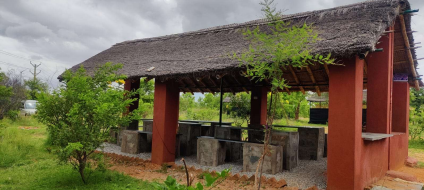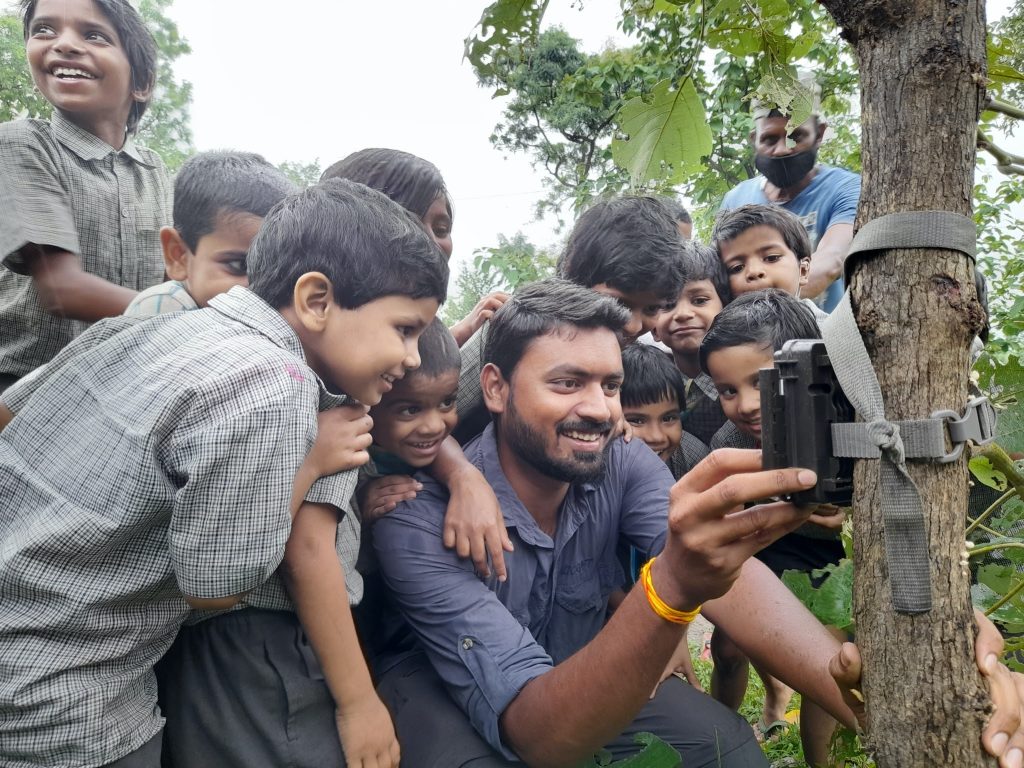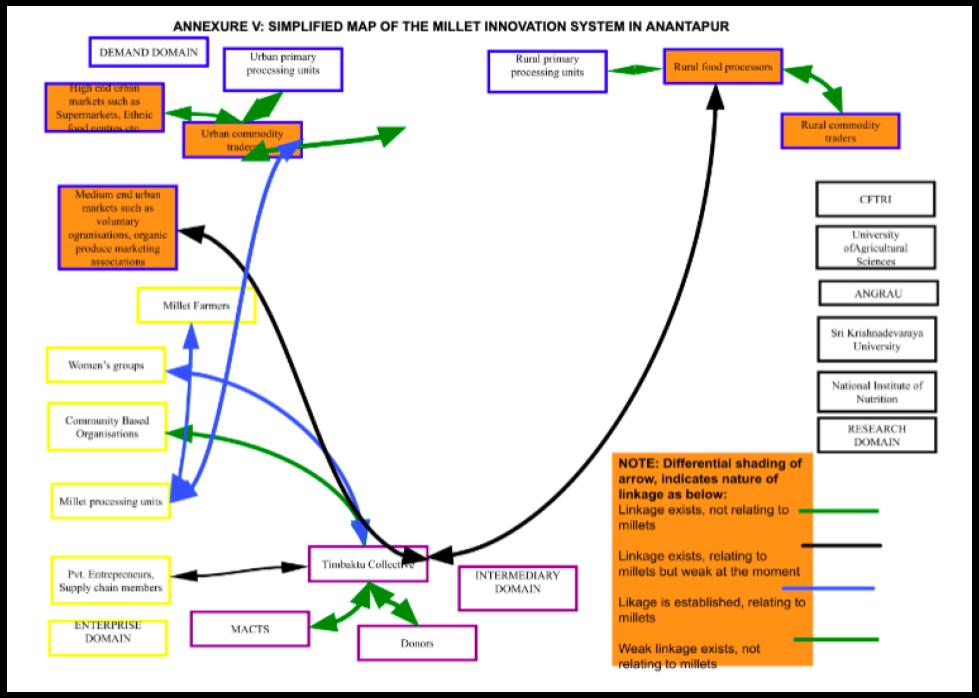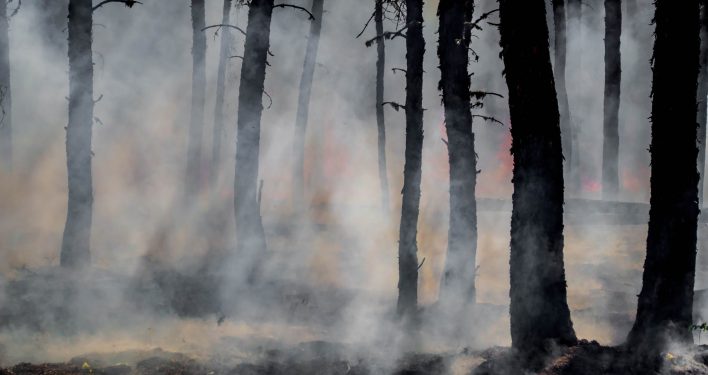ತಾಪ (Kannada: taapa; heat, fire)
August was the month of warnings and wildfires. The IPCC released its “most up-to-date physical understanding of the climate system” as part of its Sixth Assessment Report (AR6).
The Physical Science Basis is the first of the multi-part AR6. Explore it through the many datasets on
this interactive atlas. And do listen to this 6-minute podcast–two parts poetry, one part science paper–about how wildfires change plumage, testosterone and breeding in one bird species.
Despite the bleak events, August turned out to be a memorable month for all of us at the Rainmatter Foundation. One of our colleagues got engaged, we met one another in-person for the very first time and we walked through lush fields that were once wastelands. We learnt about efforts to treat cattle diseases through better nutrition and homeopathy, how games and simulations can inform and enable better policy-making and got a glimpse into what the path to carbon/environment disclosures for companies entails. We also started to onboard two new partners: Janaagraha and Uttarayan Wildlife. One thing that we now hope to do more of is to document and share best practices and solutions from across the network.
From the community
Forest First Samithi has been involved in eco-restoration efforts around the Kabini river basin in Wayanad district in Kerala. Degradation of the Wayanad forests means floods during heavy rains and droughts during summer in the downstream regions of the river Cauvery. FFS roped in local residents to eliminate the two main invasives in the forests. Here’s a quick look at the Lantana and Sennna removal efforts and the terrain six months later. They’ve also planted 6,160 saplings of 80 species and plan to add another 2,000 riverine saplings in the coming weeks.

Campsite at Timbaktu collective. Photo courtesy: Timbaktu collective
Say Trees has set up a one-acre nursery in Kolar where they are raising 85,000 saplings of 27 varieties of native species.
The Timbaktu Collective boosted its community conservation works with the development of a responsible-eco-tourism campsite that now has eco-friendly bed facilities and a community dining space.

DP Srivastava with students during a day-long outing to the village forest area close to Bhopal on International Tiger Day on July 29. Photo courtesy: DP Srivastava
Fellow DP Srivastava has been studying human-tiger interaction around Bhopal and in the Ratapani Wildlife Sanctuary (RWLS). He spent the last few weeks training 80 forest guards, foresters and rangers of four ranges of RWLS in using camera traps as well as in identifying tracks and signs of mammals. He has also been engaging with children to educate them about the importance of tigers in the forest.
Millet ecosystem: Ashis Panda’s map of the various actors and stakeholders in the millet space is a handy overview of the existing millet ecosystem. It is based on lessons drawn from multiple millet programs running across the country, such as from the Orissa Millets Mission program, Karnataka’s minimum price support mechanism, initiatives by organisations like DDS, Timbaktu Collective, WASSAN, Earth 360 Ecoventures, Manyam Foods etc. The idea is to use this map as a guide and a template to build collaborations across the value chain in the months leading to the year 2023, which the United Nations has designated as the International Year of Millets.

Credit: Ashis Panda
Noticeboard
📌 As more and more people take to cycling, Naazia Farhein examines the societal and infrastructure obstacles that women bicyclists face.
📌 Flying Elephants is a poignant, 6-minute film on the threats faced by the Asian elephant. The black-and-white short, narrated in the betta kuruba tribal language, is a visual delight!
📌 Glific is an open source, two-way communication platform that allows NGOs to chat with lakhs of people simultaneously. While the Glific platform itself is free, there is a small
cost involved with sending and receiving messages via WhatsApp Business API. Have questions? Mail the tech genie: [email protected]
📌 Down To Earth reports that 114 urban local bodies in Odisha cancelled all on-going tenders that were not in line with decentralised micro-composting or material recovery in order to move towards a decentralised waste management plan. Turns out this decentralising has been a roaring success.
📌 The latest edition of 36, The Morning Context’s weekly environment newsletter, notes that the Union government has agreed to translate the draft environment impact assessment notification 2020, or EIA 2020, into all the 22 official languages of India. The government had been resolutely avoiding wider consultations on the draft, which proposes controversial and problematic amendments to India’s main law for environment clearance. The recent development now implies that there is a possibility of a wider and more inclusive public consultation on the draft EIA 2020.
📌 Can you host a public screening for short films about the practical aspects of implementing environment-related court rulings and decisions? Get in touch with Debadityo:
[email protected]
📌 Akshay has put together a quick and dirty jobs list for the sustainability space. Apply, add, amplify.
Dhanyawad.
Parting shot
Humanity may or may not escape the effects of a warming planet, but guess what might survive the heat for well over a 1,000 years? “Two leaves that cannot die”. Read about the
genetic mysteries that enable the Welwitschia plant to last millennia in the harsh Namib desert.
Until next time, may your roads be auspicious,
śubhāste panthānaḥ santu
Team Rainmatter Foundation
PS: This is the third edition of the news digest. What can we do better? [email protected]

